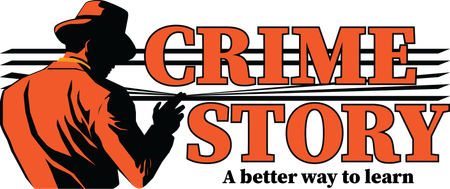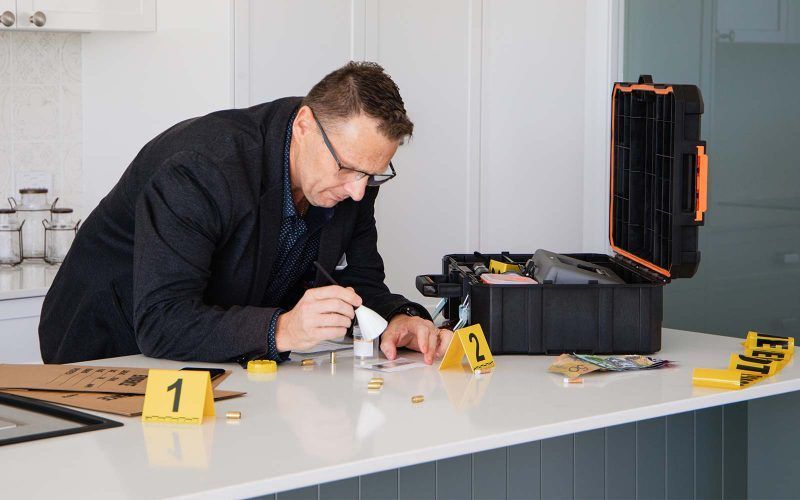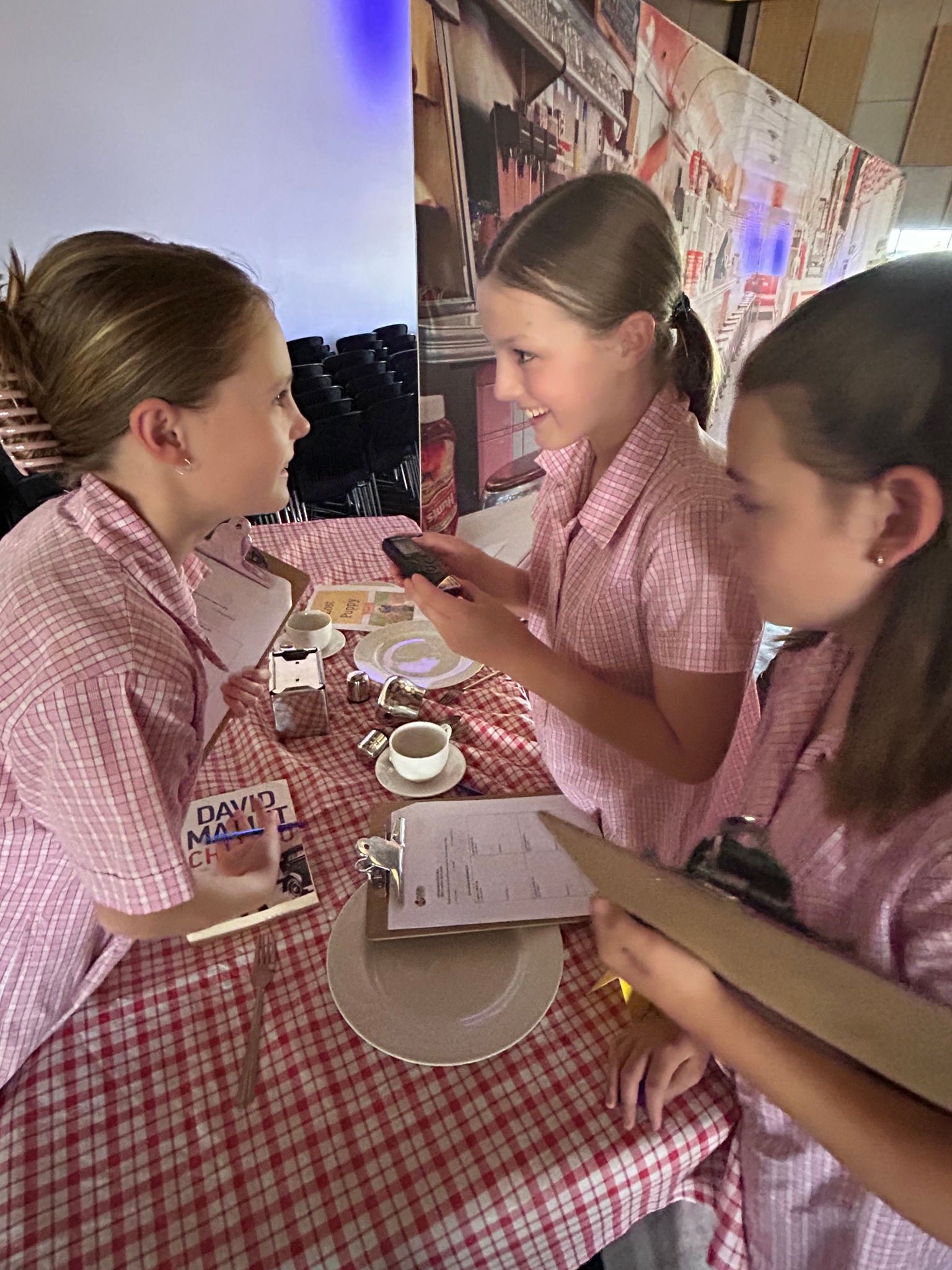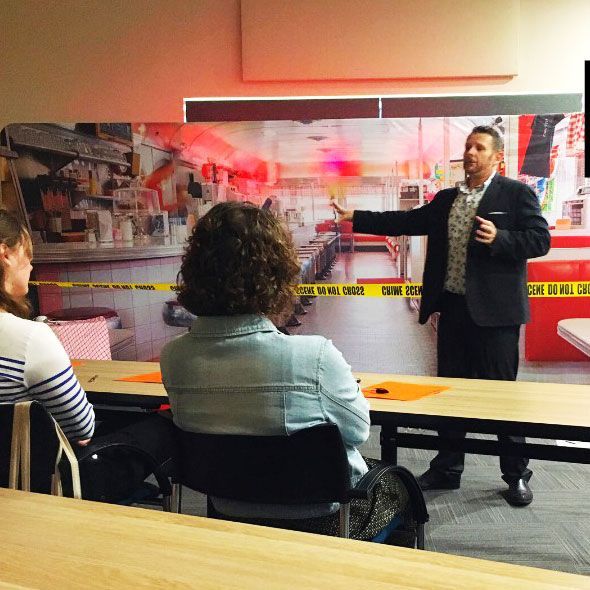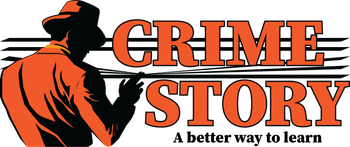Have a Question?
Engaging Learning Through Crime Story
“If you were the star of the show, if it was fun, interesting, and not like a classroom, then you would achieve so much more.”
Igniting Engagement Through Experiential Learning
As an English teacher for over 11 years, I became captivated by the challenge of engaging students across diverse learning levels while navigating outdated teaching methods. Drawing from my 14 years as a Detective, I discovered that sharing compelling anecdotes and creating mock crime scene investigations sparked student interest. I developed immersive methods to engage participants as investigators, focusing on authentic dialogue, research skills, deep imagery, and intriguing character development. Through this approach, I found that crime scene analysis could also facilitate research and academic writing, allowing students to take charge of their investigations, build confidence, and experiment across the curriculum. The secret to deeper learning? Asking the right questions.
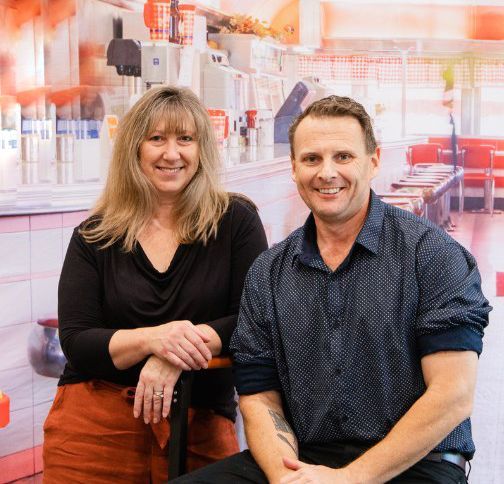
This Is About You
Learning isn't about finding a single answer; it's about inquiry, lateral thinking, and problem-solving. Every genre, including crime, poses questions that encourage exploration. I strive to create an environment where every individual can express their uniqueness and achieve their potential, regardless of perceived ability.
Better Ways to Learn
My quest for knowledge led me to further professional development, revealing how passion can sometimes fade amidst legislative requirements. To reignite my creativity, I pursued a Master of Arts in Writing, studying various genres, including crime, children's literature, and popular culture. This opened up new avenues for narrative exploration in the classroom and beyond. Why not design video games or create comics and films? Students can harness narrative structures from video games to enhance their learning experience.
The Logical Progression: Crime Story
At Crime Story, our vision is simple: to find better ways to learn. Our mission is to engage, inspire, and empower you to create. We believe everyone deserves access to our resources, whether in urban, rural, or coastal areas. Our flexible and mobile approach challenges the limitations of traditional learning opportunities. We provide timely feedback to schools and individuals, working alongside you to maximise your potential.
Transferable Skills
Our focus on transferable skills sets us apart. Crime Story equips you with the tools to elevate your abilities. Our life-sized crime scenes present real-world contexts and challenges, encouraging you to investigate by asking questions. With no right or wrong way to approach the investigation, everyone engages with the same information and discovers unique pathways to solutions. Using authentic forensic tools, you’ll dust for fingerprints, swab for DNA, conduct interviews, and gather evidence, all while crafting a narrative that reflects your unique perspective. Our format helps you build engaging stories and enhance research and evaluation skills for academic writing.
What They Say
“The Crime Story workshops, using practical activities, helped me gain confidence and understanding in structuring my Mod C response for the HSC. Additionally, it provided clear pathways for how to enhance my creative writing through the exploration of authentic dialogue and dynamic imagery. Thank you so much for your dedication in your students Luke!”
Claire M.
“The immersive and fun nature of the Crime Story workshop I attended allowed for a better, more engaging way of learning integral yet transferable skills that will aid in my studies at university. Through the critical appraisal of literary techniques, such as lexical chaining, the Crime Story workshop positively aided my performance in the HSC, as my individual skills were supported and guided to produce increasingly advanced literary pieces. As the workshop was exceedingly interactive, it presented a more comfortable and successful teaching experience beyond school classrooms. With heightened value on each student, Crime Story workshops build confidence in literary abilities, pushing boundaries of individuals’ achievements.”
Sophie O.
“Explosive fusion of passion and resilience to encourage and empower so many, both today and ahead. A must see to gain insight into soft and transferable skills, how to best communicate your story… and the fun process of having a go- being in life!”
Lati
"You are both incredible at what you do! I don't think I have seen a more engaging incursion-
excursion before that had all the students, and us, hooked from start to finish”
Freeman College
“Our HSC Craft of Writing results were the best ever for Scots All Saints. Crime Story really gets
the creative juices flowing for students who may not traditionally be confident with imaginative writing”
Leigh Morrisey HOD Scots All Saints 2023
“Hands down the best experience I’ve been involved with in 30 years of teaching”
Sarah, Domremy College
“Your staff were able to assist and guide their ‘thinking’, allowing for contextual understanding and creativity. If they could not quite verbalise what they wanted, the visuals were the back-up.
I liked the use of phones for taking evidence photos for future reference. Those students that have an addiction to their phone declared they could then use it any time of the day – no, this is not how the process works was my reminder!
Loved the time schedules. It prompted me to forge ahead with this again in my classes as it had gone by the wayside a bit. So important for students (and ours!) time management as there are quite a few that benefit from this on-task directive. I appreciate the reminders and prompts of effective class management.”
“What was phenomenal is the morphing of real-life experiences with creativity. This inspires me and has the potential to create endless scenarios, simply from lived experiences appropriate for whichever student dynamics you are working with.
Language use was excellent, as were the handouts. This is something I am continuously embedding in my lessons to stay proactive with terminology and language for both myself and the kids. Do they respond positively? Well something has to be a work in progress.
I’m excited to follow your journey and look forward to seeing you both again. I am in the process of embedding their post ‘Crime Story’ creative writing task (Yr10) into class time once we have completed our movie (Freedom Writers) this week.”
Cassie M., Teacher, Kempsey Adventist School
Frequently Asked Questions
What is ‘experiential learning?
Experiential Learning is the process of learning by doing. By engaging students in hands-on experiences and reflection, they are better able to connect theories and knowledge learned in the classroom to real-world situations.
Do you come to my area?
Yes! We travel from our home base in Wollongong, and cover from Melbourne to Brsisbane, everything in NSW.
We pride ourselves on reaching the rural, country and coastal areas as well as the cities.
What does it actually look like?
2 crime scenes either end of the room, both 6m x 2m with hundreds of exhibits to investigate. There is also a forensics station with fingerprinting, DNA and ballistics.
Is this a true crime? Wth real forensics?
(Yes it is!) We use genuine fingerprinting equipment, ballistics modeling and DNA swabbing as used in the field.
Were you really a Detective?
I was a Detective for 14 years in Sydney, working at Blacktown, Cabramatta, Windsor and the Child Protection Sex Crimes Squad. I was also Coroners Liaison Officer and worked a number of Undercover Operations.
Are you actually a teacher?
Proudly so! After leaving the Police I studied literature and literacy and accidentally became a High School teacher. I have maintained my NESA accreditation as a teacher and undertake casual teaching to maintain this license.
How much space do I need?
Half of a basketball court/gym, or a double school room (with 80% open partition minimum) Tables and chairs for groups of 4.
What if my school or business only has small numbers?
Why not maximise the numbers with special guests, invitees, parents, all age groups?
What's the maximum number of people?
Our standard workshop is 40 adults, 50 students. Experiential learning relies on every participant having equal access to the exhibits without intimidation so they are free to work their own magic.
For major events and conferences we can cater for up to 120.
Is there a minimum?
No, but the investment will remain the same so we invite you to think outside your immediate department and invite others along.
What is the ideal group size?
40 is great, but we can run more crime scenes and staff for major events up to 120 per season.
Do you charge per participant?
Workshop investment…we have many options, so if you only have a few employees it would be best to see what we can come up with. We love thinking outside of the box. Invite another department along?
When do you arrive?
We set up the day prior where possible. It takes us about 1.5 hours to set the crime.
Will you promote our business/school?
We have a social media presence with all of the usual platforms and promote your business across all services. We also have regular media opportunities.
Are there still media opportunities?
Always. We have received favorable coverage from TV, Radio, Print and Podcast. They are always looking for stories to connect to the audience, including business publications and professional magazines. I have access to a host of journalists that others do not have, and frequently send out Press Releases on behalf of you.
What if we want something tailored just for us?
That is part of the process. I will always spend time discussing your specific needs. This is about you.
Will the crime be traumatising?
No. The scenes are free from violence. Each participant brings their own context and perspective to the investigation and places their value and inferences on the alleged crime based on the available evidence.
For Primary/Young students we adopt ‘Slime Story’, which is a modified crime/mystery.
My child has ASD / identified learning difficulties, will this suit her/him?
Absolutely! This was developed and tested in schools and classes with high and moderate needs. In fact, they often excel in this environment, without the restraints of a traditional classroom
Do you cater for NDIS?
Yes we do, we are mobile and flexible and would love to work with you.
What age groups is it suitable for?
Year 2 right the way through to retirement homes. Each Stage at school is aligned to curriculum outcomes, and Corporate Training is specific to industry.
What is ‘conversation management’
It is more than just effective communication. Dr eric Shepherd pioneered this for law enforcement and is a tool that is applicable to any investigative interviewing context
What is psychological safety
Psychological safety means feeling safe to take interpersonal risks, to speak up, to disagree openly, to surface concerns without fear of negative repercussions or pressure to sugarcoat bad news
